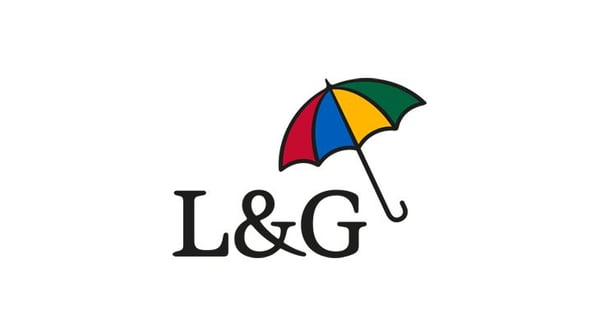
What happens to my pension when I die?
When you die, your dependants could be eligible for payments from your personal or workplace pensions. Your partner may also be able to receive higher State Pension payments.
It depends what sort of pension you’re asking about. When you die:
- Your spouse or civil partner may get higher State Pension payments based on your entitlement
- Your spouse, civil partner or dependants could get payments from any personal or workplace pensions you have
This article explains how that works. We’ll talk you through:
- What happens to pensions when someone dies
- How to make sure your pension goes to your loved ones
What happens to my State Pension when I die?
There’s a simple answer to how long your State Pension is paid after death. If you’re already claiming it, it just stops. But it can help your spouse or civil partner. And if you’re not already claiming it, it can pay a small sum into your estate.
If you’re married or have a civil partner
After you die, your spouse or civil partner might be able to get higher State Pension payments.
- If they reached State Pension Age before 6th April 2016
If they’re not getting the full State Pension, they could get higher payments. To find out, they should get in touch with the Pension Service. They won’t get any extra payments if they remarry or enter a new civil partnership before reaching State Pension age. - If they reached State Pension Age on or after 6th April 2016
If they’re getting the new State Pension, they might get an extra payment on top of it. That depends on when your marriage or civil partnership started and when you died. You can find out more on the Government's website.
If you’re single, divorced or just not claiming it yet
If you haven’t already claimed your State Pension, after death your estate can ask for up to three months of it. If you are claiming it, your payments just stop.
What happens to my State Pension if I die before 65?
If you die before you reach State Pension age, neither you nor anyone close to you gets any payments from your State Pension. Paying National Insurance is NOT like paying into a workplace or personal pension. You don’t end up owning any sort of pension pot.
What happens to my private pension when I die?
What happens to your private pension when you die, including whether and how long a pension’s paid after your death, depends on:
- What sort of pension scheme it is
- Whether you’ve already started getting your pension benefits
- If it’s a workplace pension, whether it also includes life cover
Your pension scheme administrator can give you more information. In general:
- If you have a defined benefit pension, it might pay a lump sum or start making continuing payments to your beneficiaries. Exactly what happens will depend on how old you are and if you’re still with the employer that set it up. Check with your pension administrator for details.
- If you have a defined contribution pension, any money left either in your pot or in drawdown will pass to your beneficiaries. They can take it either as a lump sum or as a series of payments, or use it to buy an annuity.
Thinking about taking your pension?
Answer a few simple questions to get a better understanding of what to consider before accessing your pension savings.
Inheritance tax
Find out more about Inheritance Tax and how it affects pensions.
What happens to my pension income when I die?
If you have:
- A defined contribution pension and have put some or all of your pot into drawdown, that money goes to your beneficiaries. Exactly how that works depends on the type of pension you have, and your and their circumstances.
- An annuity, you’ll have agreed what happens when you bought it. It could stop paying out, or make a single or ongoing payments to your beneficiaries.
- A defined benefit pension, what happens to any income from it depends on how it works, who you’ve nominated as a beneficiary and what you might have agreed when you signed up for it.
And if you’re not sure about any of that, check with your provider for details.
Why should I keep my beneficiary details up to date?
There’s one very important piece of advice that applies to all private pensions:
- Make sure you keep your beneficiary details up to date
It’s particularly important because your pension isn’t legally part of your estate, so your will doesn’t cover it. Keeping your beneficiaries updated makes sure that your pension helps the right people in the right way when you die.
And it’s usually very easy. You’ll probably just need to log into your workplace pension account to check and update them. You should do that for every other pension pot you have too. That way you’ll know exactly who gets your pension when you die.
If you’ve lost track of any of your pensions, you can use the Government’s free pension tracing service to track them down.
What happens to my husband or wife’s pension when they die?
That depends on what sort of pension it is, how old they and you are when they die, and who they’ve nominated as a beneficiary. We’ve gone into some detail on that earlier in this article – just scroll up and find the type of pension they have.
You might be able to claim War Widow’s or Widower’s Pension if your spouse or civil partner served before 6 April 2005 and died:
- Because of their HM Armed Forces service
- In a time of war
How to claim a deceased parent’s pension
The details of how to claim a deceased parent’s pension will always depend on what sort of pension it is and how they set it up.
If you’re looking to claim a parent’s pension, a good first step is to talk to their provider. If you don’t know who that is, or think they had a pension but don’t have any details, the Government’s Pension Tracing Service can help you.
And if you’re the parent and want to make it easier for your child or children to claim your pension, you can name them as beneficiaries.
What should I do next?
We’ve covered the basics here. For more information, you can:
- Ask your pension provider for specific details of what happens when you die
- Trace any lost pensions through the Government’s free pension tracing service
- Get some advice from:
- Our Retirement Advice team
- The Government’s free Pension Wise service
FAQs
Who gets your pension when you die depends on what sort of pension it is, how old you are when you die, whether you've started taking money from the pension and what arrangements you’ve made for it.
Any personal or workplace pensions you have will go to any beneficiaries you’ve named. Check with your provider for full details of how that will work. And make sure you always keep your beneficiaries up to date! If you die before you're 75 and haven't started drawing your pension it can usually be passed to your beneficiaries tax-free. If you've started drawing money from your pension, depending on how you've accessed the money will depend on how your beneficiaries will be able to access the money and whether or not they will pay tax on the money. If you die after your 75th birthday your beneficiaries will need to pay income tax on the money.
If you’ve started claiming your State Pension it will just stop. Your spouse or civil partner might be able to get higher payments on their own State Pension. And if you haven’t started claiming it your estate might be able to get up to three months of it.
Yes, your child can inherit your pension, though they might have to pay tax on it. The exact details of how that can work depend on what sort of pension it is, how old you are when you die, how old your child is then and whether they’re still in full time education. We’d recommend talking to your provider and possibly also a financial adviser to see how it could work for you.
Related articles

Can I withdraw my private pension before 55?

Early medical retirement due to ill health – what to do?

What happens to an annuity when you die?
Need some help?
Making well-informed decisions about how to finance your retirement is important so it’s worth shopping around and using available guidance and advice, before you buy:

Retirement guidance
Pension Wise from MoneyHelper
The government’s free and impartial service, offering guidance to make money and pension choices clearer for over 50s.
To find out more or book an appointment online click below or call.
0800 011 3797
Monday to Friday, 9am to 5pm.
Calls may be recorded and monitored.

Retirement advice
Retirement Advice Service from Legal & General
Our advisers are experts in retirement regulated by the Financial Conduct Authority, so you can trust them to provide impartial advice and a personal recommendation that’s right for you.
0808 304 9155
Monday to Friday 9am and 5pm.
Calls may be monitored and recorded.

Speak with us
Our colleagues in Cardiff are always happy to answer your questions.
0800 048 2446
Monday to Friday 9am to 5pm.
Calls may be monitored and recorded.

